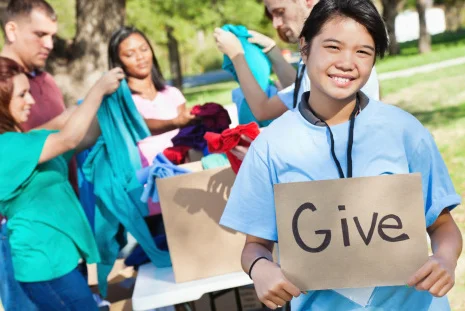+1 845 259 2974 (11 a.m to 7 p.m CST)
Teens' Independence Influenced By Perceived Peer Freedom

How often do you hear your teen tell you about a certain friend who is allowed to stay up late to watch TV or have a computer in their room, and then making a similar request from you? Chances are you hear something of the sort every few days. Kids are on a desperate quest to expand the boundaries of their personal autonomy during their adolescent years. This is a completely natural and healthy part of development. However, what may be confusing for you, as well as countless parents across the United States, is how teens define appropriate level of freedom and in what areas they’d demand more autonomy. Interesting new research suggests that the influence of peer pressure plays a major role in teens’ quest for freedom, with the latter using friends as a yardstick to obtain their freedom.
Teens’ scale for gauging appropriate levels of freedom
There have been numerous studies highlighting the implications of peer pressure for teenagers. As it turns out, it is involved in influencing teens’ perception of appropriate levels of freedom as well. According to the research conducted at The Ohio State University, kids typically use peers as gauge in their quest for greater personal autonomy. The question of how teens decide in which areas they want more freedom was answered by two studies involving 500 youth in grade 6 through grade 9, and grade 12 in the first study, and a follow-up on the 6th and 7th graders a year later in the second. It was learned that perceived peer freedom had a major influence on teens’ decision of areas in which they desire higher level of personal autonomy. Since they don’t have any clear guidelines for expanding their boundaries of freedom as they’re growing up, they end up using friends as a gauge.
Peers as yardstick for freedom not such a good idea
While expansion of personal autonomy is a normal part of development, teens don’t always go about it in the healthiest of manners. Research found that by while using peers as a yardstick for freedom, they consistently overestimate the level of personal autonomy enjoyed by their peers. This is hardly surprising, as kids often tend to boast greater freedom in front of each other in order to appear more grown up. The exaggerated claims set up flawed standards for others to gauge their freedom against. Feeling hard done by, teens may end up intensifying their efforts to push for greater freedom in their lives, thus presenting parents with a pressing challenge.
Parents can take control of the situation
Teens embarking on a desperate quest for greater personal autonomy using a flawed scale can easily need to a conflict between them and parents. It order to avoid this conflict, parents need to be proactive in dealing with the matter. It is important to be clear and upfront about the boundaries with teens. However, it is just as vital to acknowledge their growth by increasing their freedom along with responsibility gradually. Parents can also establish their control on the situation by knowing the friends their teens hang out with and, if possible, knowing their parents. This can help them n the cause of defining boundaries that are more acceptable to their young ones. Another thing that parents need to do is to keep themselves from being swayed by the unproven claims of their teens. Further probing is a must for validating whatever it is that they are saying.
Adolescence is an important part of a child’s development, and also typically presents parents with the maximum amount of challenges. Rather than considering it an ordeal, the latter should take these challenges as opportunities to help their young ones grow into healthy and responsible adults.























